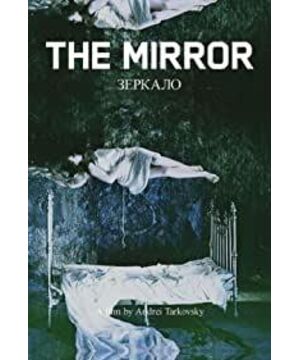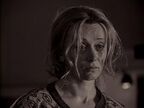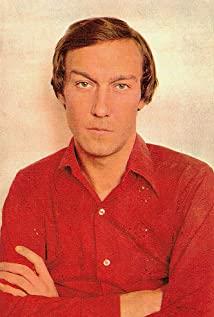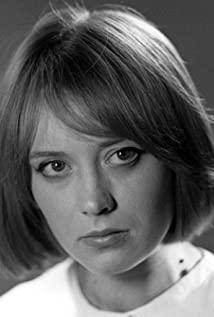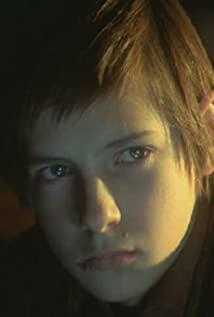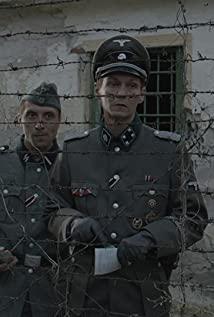In 1974, Andrei Tarkovsky finally had the freedom to choose his subject matter with the success of the sci-fi film "Solaris". In previous years, several of his screenplays had been rejected due to objections from the (Soviet) State Film Board, and production had been suspended. But this time, Tarkovsky, who is middle-aged, chose autobiographical themes, looking back on his childhood, boyhood, and father and mother. This is the "mirror" that was later praised by Bergman and called "miracle of film history" by Haneke. However, after the release of "Mirror", a considerable number of audiences and scholars expressed their confusion. Tarkovsky has repeatedly emphasized that "There is nothing in Mirror that cannot be understood, it is just a very simple linear narrative story that everyone can look at as their own experience." However, the existence of sound and picture The sense of rupture between the films, the emotional logic (rather than the simple rational logic) that the camera cuts follow, and the extremely personal feeling of time still confuse the first-time viewers of the film to a considerable extent. This is a movie that requires the audience to constantly mobilize their own life experience and emotional perception to immerse in it. It is not enough to "watch" externally. In other words, "Mirror" defines what film can do as art, not to provide visual spectacles and entertainment experiences, but to expand the awareness of the human mind. This is also Tarkovsky's perception of poetry ("The poet's mission is to ignite the spark of the heart, not to cultivate idol worshipers." - the line of the protagonist in "Mirror"), and his life in the film career. in pursuit. As an autobiographical film, "Mirror" is especially special. It is almost the kind of film made for itself. The seemingly random fragments are actually carefully scattered with code words, private metaphors, and memories that only act on individuals. Identifier. Thus, only by re-watching "The Mirror" can we remember these cues, construct the hidden connections of these fragments, and understand the "memory" expressed by Tarkovsky. In fact, the magic of "Mirror" is here. It tries to express the memory problem that everyone will face in life, but touches the ultimate secret of the personal spiritual world: how does human try to accurately express the memory problem? The unspeakable, and how memory, as a reality abandoned by time, gradually invades people's dreams, reality and imagination, and how it secretly acts on human language and human will. 1. Three Narrative Ways of Memory In the first paragraph of the feature film, the young mother sits quietly on a hedge, and on the field in the distance, the figure of a man walks from the distant view into the close view. Our mother's lines imply that, while looking out at the fields, she once mistook this stranger for her returning father. After watching the stranger leave, the camera returns to the mother's back, and follows the mother's footsteps, passing a child who fell on the ground (the nanny helped the child up), and another child eating on the dining table, with milk and food scattered messily At the table, while my mother walks through it all lost, oblivious to the chaos of life, the voiceover shows my father reciting a love poem: Every moment we meet is celebrated as Epiphany. The whole world is just you and me. You are as agile and light as a bird's wings. He hurried down the stairs, two steps in one step. You pulled me through the damp lilac bushes. Come to the other side of the mirror... your domain. ... Upright God, you are mine. you wake up. Changed the earthly language of mankind. My throat suddenly filled with new strength. When I say the word "you", I find it has a new meaning of "king". In a trance, everything is changing. Trivial matters shrouded us. Stay close. There are endless. We were dragged and we didn't know where to go. A fantastic city floats by in front of you, like a mirage. The wild mint paved the way for us, the birds escorted us, the fish in the water followed, the sky opened our love, and destiny is following our footsteps. Like a madman, wielding a razor. The poem begins with a sweet everyday scene of lovers meeting, the tone keeps rising, the lover's "you" becomes "the language of the world", the "king", and finally, it ends in an unimaginable situation: everything seems to revolve around this love affair And unfolding, even "destiny will follow our footsteps", thus reaching the grand and lofty realm of spirit. And through the next paragraph, we know that the protagonist's poet father abandoned his mother and child in 1935. This episode is based entirely on Tarkovsky's childhood experiences. Father Arseniy Tarkovsky left home, leaving behind a country mansion, a lonely mother and many poems. As a child, Tarkovsky was immersed in his father's poems, perhaps including this love poem to his mother - which constituted a childhood memory of Tarkovsky (these poems formed Tarkovsky's love for his father). spiritual identity), and another recollection is the real scene of the mother waiting alone for the father. The sweeter and sublime the father's poetry, the more poignant the reality of his own absence. Especially when the mother mistook the stranger for her father, this feeling of hopelessness reached its climax. So, at the end of this segment, when the emotion of the poem reaches its peak, the mother finally breaks her forbearance and weeps for the camera. We see the power of language deflected and invalidated. Then, there were cries of fire from outside the house, and the mother rushed out. The two children at the table heard their mother say the house was on fire and ran outside. At this time, Tarkovsky used an unconventional scene scheduling-the camera did not follow the figure of the child to the burning house, but stayed in front of the messy empty dining table until a milk can rolled from the table to the ground . After that, the camera slowly circled the interior of the house and aimed at the shadowy backs of the two children standing at the door. Through the children's backs, we could see the faint light of fire. When the burning house finally comes into view, the scene is calm and landscaped rather than chaotic and catastrophic. This bizarre visual representation is undoubtedly a recollection after rational modification, a re-creation based on memory rather than direct memory. Memories of the past are constructed through recall, adding to the daily order of reality. This confusion of recollection and recollection is confirmed by the protagonist's later monologue: "I often have a dream that I go back to my favorite place, the house that my grandfather built. I was born on the dining table in that house forty years ago. Every time I want to go in, something stops me. This dream, I had it again and again. When I saw the log wall and the dark storage room, even in a dream, I could realize that I could only dream about it. Then the joy disappeared because I Knowing that I will wake up. Sometimes a sound wakes me up from my childhood dream of a house and pine trees, and I feel sad and look forward to having this dream again. This dream brings me back to my childhood. Relive the joys of childhood , makes me feel that everything is ahead, everything is possible." The repetition of the dream makes the dream itself a memory. Although the recollection of memory in reality imitates the scene in memory, it is mixed with the sadness of loss. Only through dreaming can we find what is lost in reality: emotions in memory. Thus, the character enters the dream by recalling it. The passages of the dream are black and white, everything in the dream is out of order, deformed, exaggerated. For example, the father is washing the hair of the mother, suddenly the water tank disappears, the mother stands like a bird, and the house begins to peel off and disintegrate, the young mother walks to the mirror, but an old mother is reflected in the mirror... This is not what the protagonist expects. A happy dream, but a dream full of danger and unease. The middle-aged protagonist wakes up from a dream and receives a call from his elderly mother. The protagonist mentions his laryngitis, talks about not trusting words, and also responds to the time when the first two scenes take place - in 1935, the death of his father and the house on fire. Then, in the lines, the protagonist alludes to the unresolved communication barrier between himself and his mother, and the mother mentions an incident that happened in the real dimension: Lisa, a colleague who used to work in the printing house, died. After the phone call, the next paragraph naturally connected to the paragraph when my mother went to the printing house to proofread the manuscript when she was young. The camera follows the mother from the outdoors all the way into the office and arrives at the room where the printing machine is located. Through the movement of the camera and the interaction with others, a political and high-pressure atmosphere of tension and mutual distrust is created. The mother suspected that the proofreader had miscorrected a word, and we speculated on the seriousness of the matter by the crying of the other girl and the mother's refusal to explain to a colleague. And "that word" has never been revealed in the movie, which makes the emotion of fear and anxiety tighten within the silence, unable to escape to the meaning of any word. The context in which this passage takes place is the period of the Great Purge. We can feel this inexpressible tension and repression that the mother feels, especially, fear does not point to a specific event, but just an abstract existence that will come randomly at any moment. After checking, the proofreading did not go wrong. Mother walked out of the room slowly, and we saw her exhausted face, almost suffering an inner catastrophe. At this time, as the camera gazes at the mother's face for a long time, the voiceover of the father reappears: Yesterday, I waited since the early morning, and they guessed that you will not come. Remember what a wonderful day it was? Sunny as a holiday! I don't even have to wear a coat. Today, you are here, but the weather is gloomy and dark with rain falling, and it is late, the rain is flowing on the icy branches, words are difficult to soothe, and Fangpa can't dry it. This is still a love poem, but the emotion is nowhere near as confident as the previous poem. In this poem, although "I" is waiting for the lover, the "weather" after the lover arrives is gloomy and gloomy. "Dim weather" can be interpreted as a bad social environment. The lovers wanted to share the good times, but at this moment they were tested by the environment and had to share the dark side of the times. Here, the romance no longer turns to the sing-along of all things, but to the interior of the two-person relationship of mutual attachment. As a result, the juxtaposition of poetry and pictures creates a contrast again: in a politically high-pressure environment, the mother experiences spiritual fear and depression alone. In the following attack on Lisa's mother, the fact that her father abandoned her mother was mentioned again. Lisa believed that the reason why her father left was because of her mother's character defect, and her mother fell into a better and helpless state. In this clip, the protagonist is obviously unable to participate in his mother's memory. Only through her mother's later retelling can the protagonist know her mother's experience on that day. Therefore, this picture transforms the memory told by the other into a personal imagination of the memory of the other. Although the story comes from the mother’s real experience and details, it belongs to the fictional category of the protagonist. understanding. 2. After the three sets of mirror relationships across time end the memories of childhood fathers, the movie time returns to the present again. The picture changes back to color, and the face of the young mother is in the mirror, and through the protagonist's line "You really look like my mother" and the following dialogue about educating children, we know that the woman in the mirror is not the mother, but the actor Ma. Another role played by Gerrit Terekhova in the film: the wife who has divorced the protagonist in reality. This is probably a deliberate confounding effect created by Tarkovsky: not only the audience, but also the protagonist seems to confuse, so that the protagonist later says: "Whenever I think of my childhood mother, I always think of your face. On the one hand, memory is invaded by reality, and at the same time, when the protagonist stares at his wife in reality, reality seems to have the texture of memory. The mother in memory and the wife in reality should belong to two different time and space, but because of similarity, they become the entity and mirror image of the same person, coexisting in the same time and space. The wife repeatedly brought up the relationship between the protagonist and the mother, blaming the protagonist for neglecting to take care of the mother, and the mother's appeal was attached to the wife. And the relationship dilemma that the protagonist and his wife cannot communicate is a continuation of the communication barrier between the protagonist and the mother. Coexisting with the female mirror image of "wife in reality and mother in memory" is the male mirror image of "childhood protagonist and son in reality". The protagonist does not want his son to be like himself, in the absence of his father. growing up. However, the reality of divorce faced by the protagonist reluctantly imitates the childhood in his memory, and he, as a father, is passively absent from his son's childhood. Time is like a whirlpool, placing the "me" in reality in the position of "my father" in childhood. At this point, the third group of mirror structures is revealed, namely "my childhood father" and "my father now" . In addition, we have noticed the treatment of the protagonist in the movie. His adult image never appears in front of him, but instead is replaced by dialogues, monologues, and voices on the phone. This is similar to the voice-over of the protagonist’s father. ' became a parody of the recalled father's voice, this time the symmetry between the two voices. 3. The Three Faces of History The images in The Mirror switch between black and white and color. So far, dreams are black and white, fiction is black and white. Reality is in color, and so is the recall of memory in reality. The following historical documentaries are in black and white, as if to imply that officially recorded history and dreams and fiction are the same thing. And history, presented in the film is multi-layered. After the episode where the wife asks the protagonist to take care of the son, the camera cuts directly to the party of the wife and Hispanic friends, and clips from some Spanish war documentaries are cross-edited in the daily life of Spanish immigrants. On one side is the daily life of concrete people: men imitating bullfighting performances, young women dancing, intermittent conversations; on the other side are people in documentaries: relief teams, bombed streets... And, history and reality are cut through rapid jumps, Fast, paradoxical, distorted like a dream. This is the person who is surrounded by history. People who are immersed in details, moments, and scenes but cannot see the ins and outs of history. They can only have emotions instead of emotions, and experience instead of meaning. At the same time, the son is placed in the protagonist's house, and he sees a strange woman in the dining room. The old woman told her son to read a note taken from Pushkin's letter in 1936: "The division of the Church has separated us from Europe. Every major event that shocked Europe. We are all outsiders. But, We have our own special destiny. Russia, with its vast territory, engulfed the Mongol invasion. The Tatars were also on our western frontier, shunned, and eventually retreated to their wasteland. So Christian civilization was preserved, in order to accomplish this Mission, we live in a special way. This way of life maintains our Catholic identity and isolates us from the Catholic world. You think our history is indisputable, I can't agree. Is this really looking for Is there no value that will impress future historians? I love our monarch, but I am not satisfied with everything around me. As a writer, I am also humiliated and annoyed. But I can swear that nothing in the world can Make me abandon my country, or the history God has given to our ancestors...and ask for nothing." When the son was interrupted by a knock on the door, he went out to open the door and came back to find that the old woman had disappeared, and only a disappearing mist on the table proved that she had existed. The figure of the poet's ghost, the old woman, is a clear reference to Anna Akhmatova, the famous poetess of the Silver Age. A noble image who is also loyal to the history of his ancestors, fears the era he lives in, and has suffered from mental torment all his life, but insists on writing poetry. Corresponding to Pushkin's position as "the sun of Russian poetry", Akhmatova is called "the sun of Russian poetry" by the Russians. The Moon of Russian Poetry", illuminating her dark age with poetry. Or you can simply see the vanished old woman as a specter of history that speaks to us through culture—historical deposits—and the surviving discourses, the noble beliefs sought in discourses, though Weak and short-lived, it has the power to penetrate history. In other paragraphs of the film, Dostoevsky, Chekhov's "The Sixth Ward", Turgenev's "House of the Noble"... Although these cultural memories are always embedded in personal life memories, they are not. Nothing prevents the entire human history from going to war, massacre, madness. In another note read by his son, Tarkovsky expresses this concern: "To the question of whether science and art can affect human morality, Rousseau's answer is: No." At the end of the fragment, the protagonist His voice appeared on the phone, and he mentioned the love that happened in his boyhood with his son, which awakened the memory of history—— The picture is of a shooting range in winter. The boyhood protagonist heard the instructor's command, but insisted on making the corresponding actions in Russian. Here, language, as a man-made norm, is no longer an absolute truth, but only an identification of national identity. Through the lines, we know that this is a certain period after the occupation of Leningrad, the protagonist's father died in the siege of Leningrad. The protagonist does not hesitate to anger the instructor, but still insists on identifying with the Russian language. After training full of conflict and confrontation, and a near miss, the protagonist finally left the shooting range alone. War documentaries appear again. The protagonist's father begins to recite another poem: ... There is no death in the world, everyone is immortal, everything is eternal. Whether you are seventeen years old, or seventy years old. There is no need to fear death, there is only truth and light in the world. There is no death or darkness. Eventually we reached the beach. I am one of those who pull the net, watching the immortal school of fish. In a house that never falls, I will call upon all the centuries, call them in, and build my dwelling together. So, at my table, your sons and daughters sit with your wives. Great-grandfather and great-grandchildren together. The future is predestined in the present. Facing you, I raised my palm gently, leaving you with five rays of light. With the shoulder bone as a support, I hold up every passing day. I use a folding ruler to measure the time. I roam in it, like walking through the mountains. Compared with my own life, I intercepted one of them. As we head south, the prairie raises swirling dust. The long grass blocks the way, and the loitering grasshopper taps my hooves with its tentacles. ...like a monk, it foretold my death. I take my destiny, tied to the saddle. I will ride my horse into the future. Standing on the stirrup, I still look like a boy. My immortality is enough, because my blood has flowed through the vicissitudes of life. I am willing to give my life in exchange for an eternal corner, safe and warm, no longer let the flying needle of life, pulling through the world like a thread. The poem responds to the relationship between the individual and the era. The magnificent slogan-style golden sentences in the first half express the great belief of pursuing immortality, not fearing death, and building a homeland. But the second half of the poem gradually shifts from slogan-like shouting to anxiety about personal life situation, until it feels an ominous fate that is about to befall him. At the end of the poem, the poet shows a certain exhaustion after pursuing noble beliefs. Compared with achieving a great cause, the poet is willing to sacrifice his life in exchange for a safe corner after death, rather than dedicating his life to war, nation, A great cause to be proclaimed. And the documentary image corresponding to the voice of the poem has changed from soldiers wading in water to the death of Hitler, the air raid on Pearl Harbor, the US military dropping the atomic bomb on Japan, the cult of personality during the Chinese Cultural Revolution... History is accelerating with the ever-advancing events. Its own pace, canceling all details. The picture cross-edited with the documentary is: the young man is overlooking the people coming and going in the distance on the snow, infinitely tending to stand still, suddenly, a bird flies to the young man's brim, compared to the cold, vast and ruthless historical process, the individual Life seems so vivid, fragile and precious. Once again, my father's poetry provides spiritual support and comfort to the protagonist who is overwhelmed by the flood of history. This directly triggered the protagonist's nostalgia for his father, and the movie screen also turned to the scene of his father's return. The scene of my father's return must have made a deep memory in my childhood "I", so that "I" not only remembered the moment when I jumped into my father's arms, I remembered my father's shiny military uniform, but also remembered the scene that happened before this: my childhood me and my sister were in There was a quarrel in the woods, and suddenly I heard the call of my father. This is the voice that the protagonist has waited for his entire childhood, and it will surely echo in his subsequent life. 4. The way of language, memory or remorse contrasts with the childhood full of emotional tension, but the reality of the protagonist's adulthood is deeply mired in the mire. At this time, the protagonist seems to have lost the strength to mend his life, and he is having a brief and powerless period with his wife. After the conversation, he once again fell into a childhood dream. This time, the vision in the dream began to decay and shatter, a chicken shattered the window glass, the childhood table was placed on the wilderness, and the wind blew its contents down - the past was completely impossible recurring past. At the end of this disturbing dream, the young "I" walks through the dilapidated landscape of the childhood home, and a door that "I" cannot open suddenly opens automatically, and the mother is there. It can be said that the mother, as the emotional core of "my" childhood, supported the whole childhood world of "my". Although, it was this relationship that continued into "my" adulthood, which directly caused irreparable wounds in the relationship between me and my mother. In the last flashback of the memory, the mother took the childhood "me" to the neighbor's house. Mother sold a pair of earrings to a neighbor. And while "I" was sitting in the living room waiting, I saw the milk spilled on the table. The milk jug and the poured milk appear repeatedly in The Mirror, and it seems that for Tarkovsky, it is undoubtedly a marker of some kind of personal emotional memory. (Years later, the shattered milk jug reappeared in Tarkovsky's last film, "The Sacrifice.") After this, "I" looked at a mirror in the living room, and I looked at me in the mirror. come over. The camera advances toward me staring at the mirror image—the memory looks into the "me" in reality, and the "me" examines the memory. Afterwards, the mother returns home with her childhood protagonist. By the riverside, the mother and son walked with their own thoughts. Father's poems appear for the last time. The poem focuses on the relationship between the soul and the body. The soul wants to break free from the bondage of the body and fly freely to the sky, to the poet realizing that "the soul without the body is sinful". of equal importance. In the protagonist's childhood life, the father exists through the voice of poetry, representing the "soul", while the image of the mother who maintains daily life is closer to the "body". Here, the voice of poetry no longer represents the rupture of language, but through poetry, The protagonist achieves some kind of reconciliation with his parents. However, we clearly feel that memories, dreams, and the borders of dreams are more ambiguous, and the transitions are more abrupt and hard. In the dream, the childhood self walks through the empty house, holding the milk jug and staring at the mirror in the dark. In my dream, I returned to that mansion and that field as a child. Mother sat there, but she was old. Tarkovsky simulates the speed and density of human memory before death. As the last productive activity of our birth as human beings, the image of this memory is almost like the emotional crystallization of human life. At the same time, while the protagonist was lying in the hospital bed, the doctor diagnosed his condition outside the door: "Not because of laryngitis, but because of memory and conscience." Laryngitis is only an external manifestation of the disease, and in the final analysis, the disease is caused by The heaviness of reality shaped by memory. Since reality cannot be cured, the protagonist has to return to the place of memory again and again in his heart, recalling and transforming it repeatedly. Tarkovsky, on the other hand, said, "It's a form of remorse to try to solve a problem by going back to the past." Although in the film, this attempt to heal oneself by going back to the past fails. On the sickbed where the hero died, there was a divinely inspired bird spreading its wings after the trauma. This cryptically reveals the secret of Mirror: Tarkovsky accomplished some kind of self-healing by examining his own past, reaffirming his belief in the film. Just like the picture of healing stuttering at the beginning of the film, it has no plot connection with the film itself, but simply shows the mysterious healing power of language. This image is also a mirror, an invisible mirror hidden in the movie Mirror. It's just that the mirror points to human language. And language, in Tarkovsky's world, is at the same time movies, mirrors, and dreams. Now, nearly half a century has passed since Tarkovsky filmed Mirror. Images have never been more pervasive, rapidly disseminated, and permeated every corner of our daily lives, and culture has never been as impacted by consumption and entertainment as it is today. Movies have long since abandoned the quality and density of poetry. However, when we rewatch "Mirror" over and over again, we are still fascinated by its deep emotions and dreamy images. This film, which responds to the theme of time, has finally become a miracle in time, a monument, which records the most difficult and thrilling work in the world: how people cherish their doomed memories, and how people struggle to resist despair to heal. Own. Now, nearly half a century has passed since Tarkovsky filmed Mirror. Images have never been more pervasive, rapidly disseminated, and permeated every corner of our daily lives, and culture has never been as impacted by consumption and entertainment as it is today. Movies have long since abandoned the quality and density of poetry. However, when we rewatch "Mirror" over and over again, we are still fascinated by its deep emotions and dreamy images. This film, which responds to the theme of time, has finally become a miracle in time, a monument, which records the most difficult and thrilling work in the world: how people cherish their doomed memories, and how people struggle to resist despair to heal. Own.
View more about Mirror reviews


